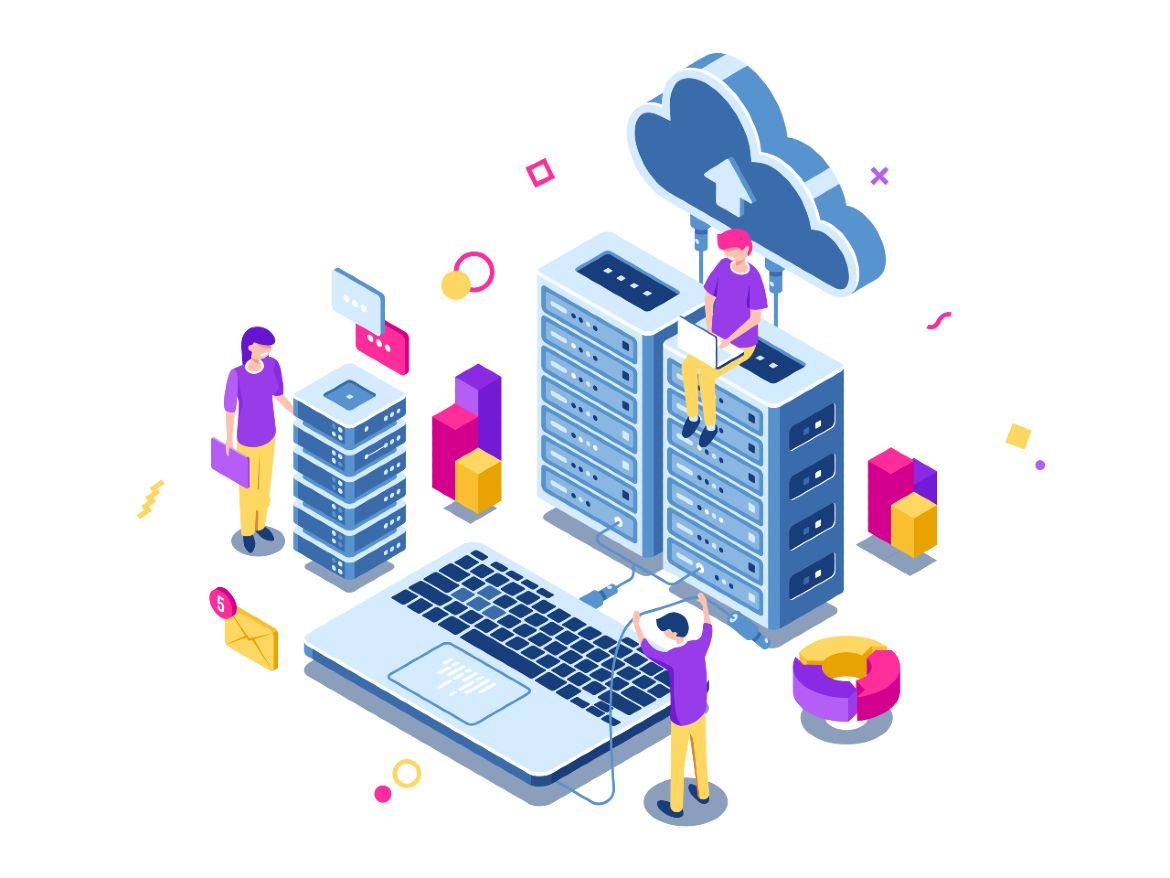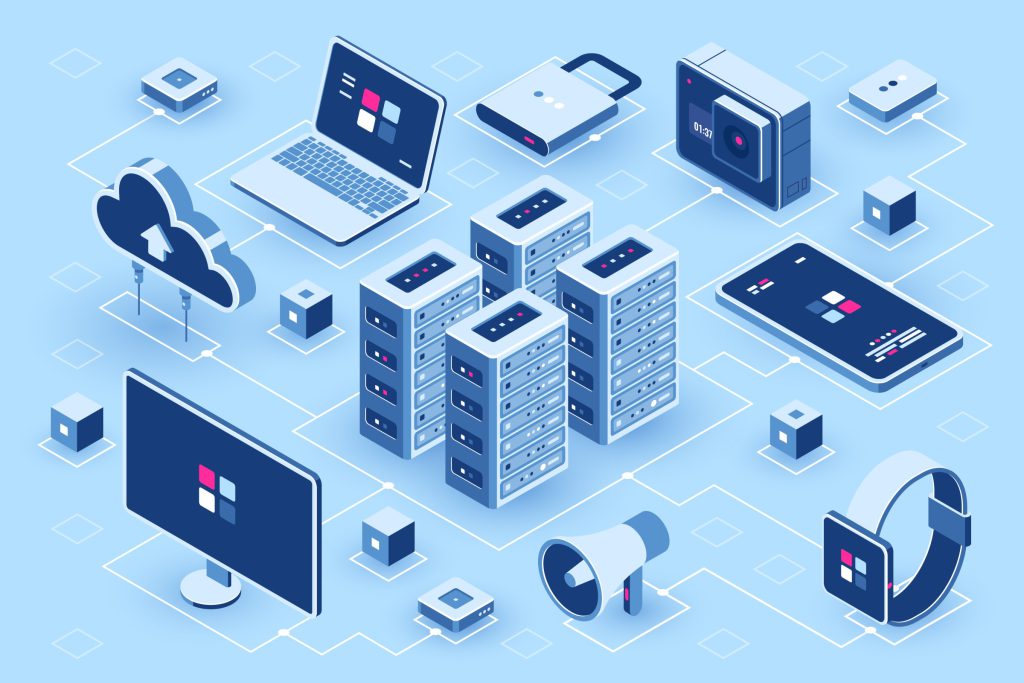Cloud Engineering- Everything You Need to Know
Cloud Engineering has gone from strength to strength with the emergence of the public cloud offerings from AWS, Azure, and GCP. This has led to greater demand for cloud engineers to build or maintain cloud infrastructure. A career in Cloud Engineering is very appealing with the vast opportunities for learning, especially the number of certificates on offer from the cloud providers.
What skills are required to become a successful Cloud Engineer?

A strong Cloud Engineering candidate is one who manages the solution and is involved in constant monitoring and maintenance. They will set aims for system improvements and work towards achieving them. They are also involved in running jobs, deployments, and services on the cloud system.
As a Cloud Engineer you are responsible for all aspects of the cloud system so being hands-on in their role is necessary. You would also have to look over setting production goals and ensure that other members of the Engineering team adhere to them. Simultaneously a strong candidate is also tasked with finding and fixing problems quickly while aligning with technical requirements.
Why should you get into Cloud Engineering?
-
Demand
With the emergence of affordable public cloud options, there has been a spike in demand for Cloud Engineers in the Irish market. Many companies have migrated to the cloud or are in the process of doing so.
This means there has been a significant demand for cloud engineers to help with the migration and manage the new cloud system. Having cloud computing skills is a great way to get recognised in the modern tech climate.
-
Easy to pick up
Plenty of Cloud Engineers start their careers in software development and then pivot. It’s easier than you think, with many developers already using cloud offerings for deployment. Many cloud roles require experience with Python, Java, or SQL. These are skills that many software developers will already have.
-
Progression
The increased interest in cloud infrastructure has opened the door for companies to build out cloud-focused teams. Here Cloud Engineers will have the opportunity to take on more senior responsibilities over time and even transition into cloud architects.
-
Learning Opportunities
As I mentioned above, there are many certs and courses Cloud Engineers can do to better understand the functionality of the AWS, Azure, or GCP platforms. There is a range of levels – fundamentals, expert, and architect. So, you can continue to improve regardless if you’re a junior engineer or an architect.
-
The Challenge
Cloud engineering is an engaging and impactful field where engineers are tasked with solving real-world issues. Cloud engineering has played a massive part in the transition to working-from-home during the pandemic.
Cloud Engineers have set up secure environments where employees can work as effectively from home as they did in the office. Over the last 15 years, the cloud has had a massive influence on the IT industry. A challenge for Cloud Engineers will be how they can best utilise the cloud and its functionality in the next 15 years.
What are the top skills in demand for a Cloud Engineer job?

-
AWS/Azure/GCP
The best cloud professionals will decide on the cloud provider that matches the company’s needs. Here the engineer will manage applications and workflows. However, each of the leading cloud platforms has its own strengths. AWS is great for building a solid infrastructure, whereas Microsoft excels when managing software, while Google allows for easy integration with external tools.
-
Programming languages – Java/JavaScript/Python
It’s common for many software engineers to pivot into cloud engineering as there are many similarities. Both write code, facilitate deployments and manage applications. Programming languages, such as Java and Python, are best suited for cloud-based software.
Java is a common language in cloud computing due to its security features, error management capability, and practicality. Also, Java can be run on different operating systems such as Windows, Linux, iOS, etc.
Python is used due to its speed and productivity. Python has extensive support libraries and is frequently used for building serverless applications on AWS.
-
Containerization – Docker/Kubernetes
Containers are small groups of one or more applications and the requirements needed for that code to run. A container will have code, a runtime environment, system tools, and libraries.
Containers play a vital role in cloud engineering. They package everything together, making them very portable, resulting in fewer integration errors. Today’s most popular container technologies are Docker and Kubernetes.
Docker is a software container platform that simplifies the process of building, running, managing, and distributing applications. Docker can run applications anywhere without compatibility issues or reliance on one device type.
Kubernetes’ logo is a ship’s steering wheel, a good reflection of its use. Kubernetes pilots or manages Docker containers so that they don’t have to be looked after manually. Kubernetes manages containerized workloads for configuration and automation. Having a good understanding of both Docker and Kubernetes will increase your chances of securing a cloud engineering role.
-
DevOps
As the name suggests, DevOps links software development with operations. It’s a work philosophy that guides software development, prioritising people over process and process over tooling.
DevOps builds a culture of trust, collaboration, and continuous improvement. In the modern tech era, DevOps goes hand in hand with cloud infrastructure. Most cloud computing platforms maintain DevOps on their platform, especially continuous integration, and continuous development tools.
Important IT Market Insights for Cloud Engineers
-
Great earning potential
With the massive demand for cloud infrastructure, there has been a war for talent over Cloud Engineers. In turn, this has led to an increase in cloud engineering salaries. A Cloud Engineer in Ireland can earn anything from €40000 – 100,000 a year or contract daily rates of €200-600.
-
Plenty of Opportunities
With cloud providers offering more functionality and affordable prices, more companies are availing of their services. Meaning there are additional cloud roles in the Irish tech market. In the past month, there have been 74 Cloud Engineer/Architect jobs posts on LinkedIn.
-
Always Changing
Cloud engineering never stands still, there are always new tools to learn. Companies like Amazon are investing heavily into their AWS cloud platform to increase functionality, so engineers can never be experts for long.
-
Cloud is becoming required rather than preferred
A few years ago, cloud experience would have been a preferred skill on most IT-related job specs. In recent times it’s become a more required skill, with some companies even being specific on wanting AWS, Azure or GCP experience.
Cloud engineering salaries insights
| Titles | Perm | Contract |
| Junior Cloud Engineer | €40,000-60,000 |
€200-400/day |
| Mid Cloud Engineer | €60,000-80,000 | €400-500/day |
| Senior Cloud Engineer | €80,000 -95,000 | €500-600/day |
| Cloud Architect | €90,000 -110,000 | €600-700/day |
There is no doubt that Cloud Engineering is here to stay in the Irish tech market. It’s a space with high demand, attractive pay and great opportunities for learning and progression.
To stand out from the crowd in the Irish job market, I would recommend that engineers complete AWS, Azure or GCP certifications. It’s a common trend for software developers to transition into cloud engineering, if you’d like some advice on this, feel free to contact me at cathal.mcaliskey@gempool.ie.
Whether you are on the market for a contract or permanent opportunity, check out our jobs page. If you would like more information about Cloud Engineering, why not check out my blog – Cloud Engineer & Cloud Architect – What’s the difference?
“Cloud is about how you do computing, not where you do computing” – Paul Maritz

